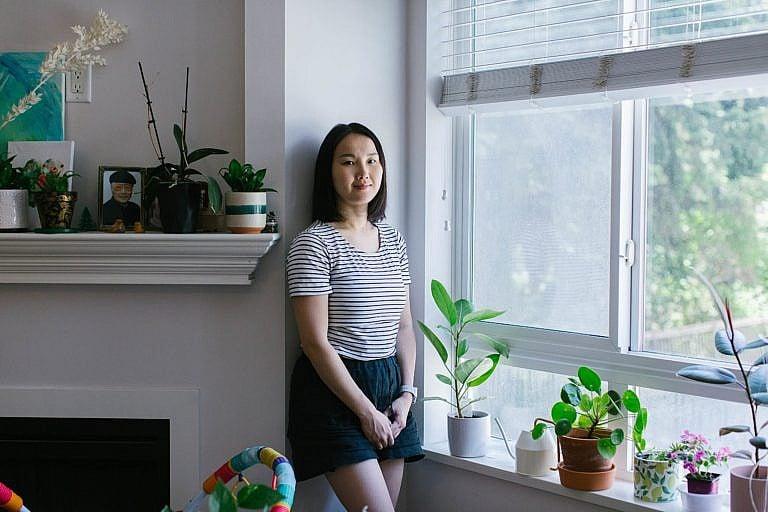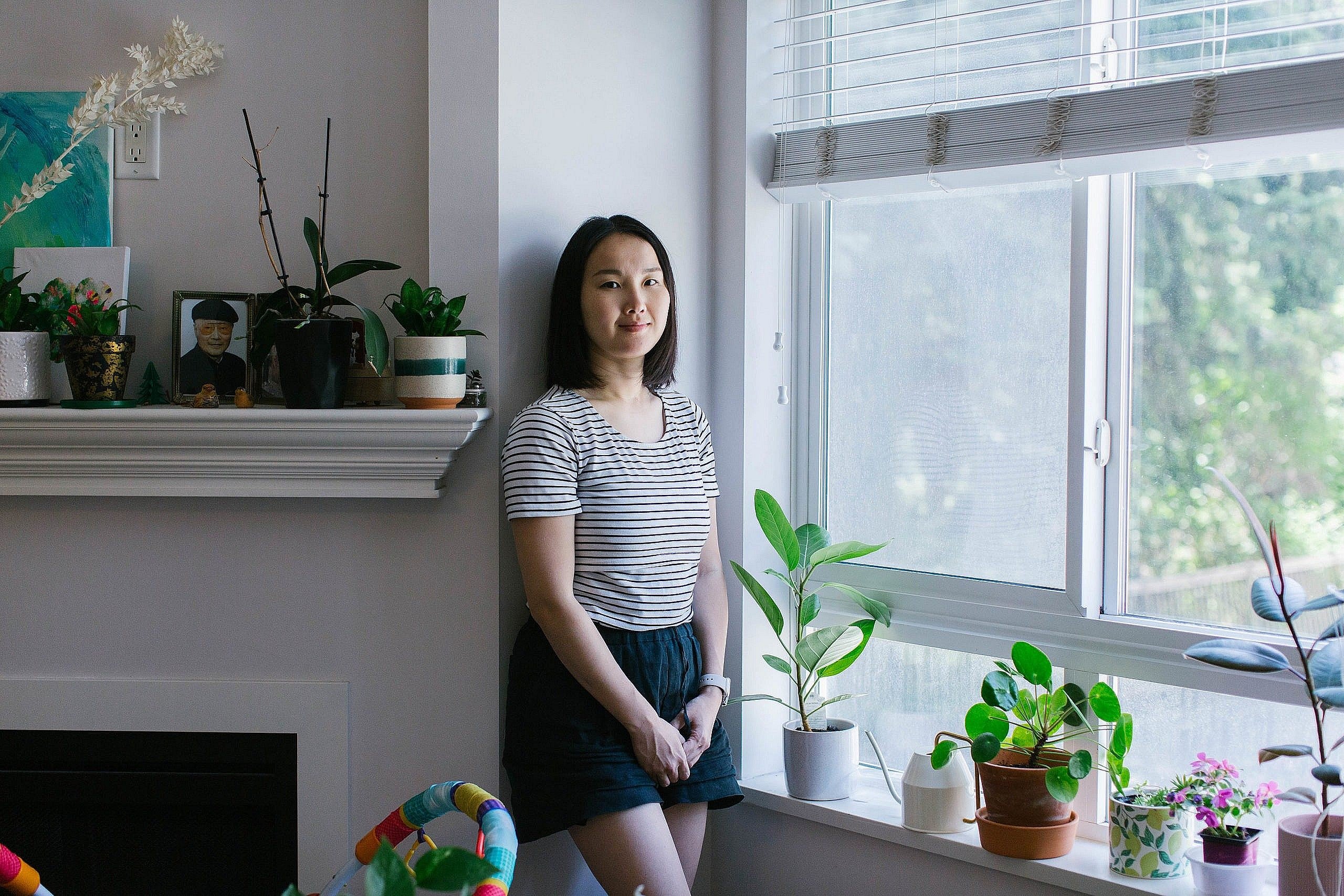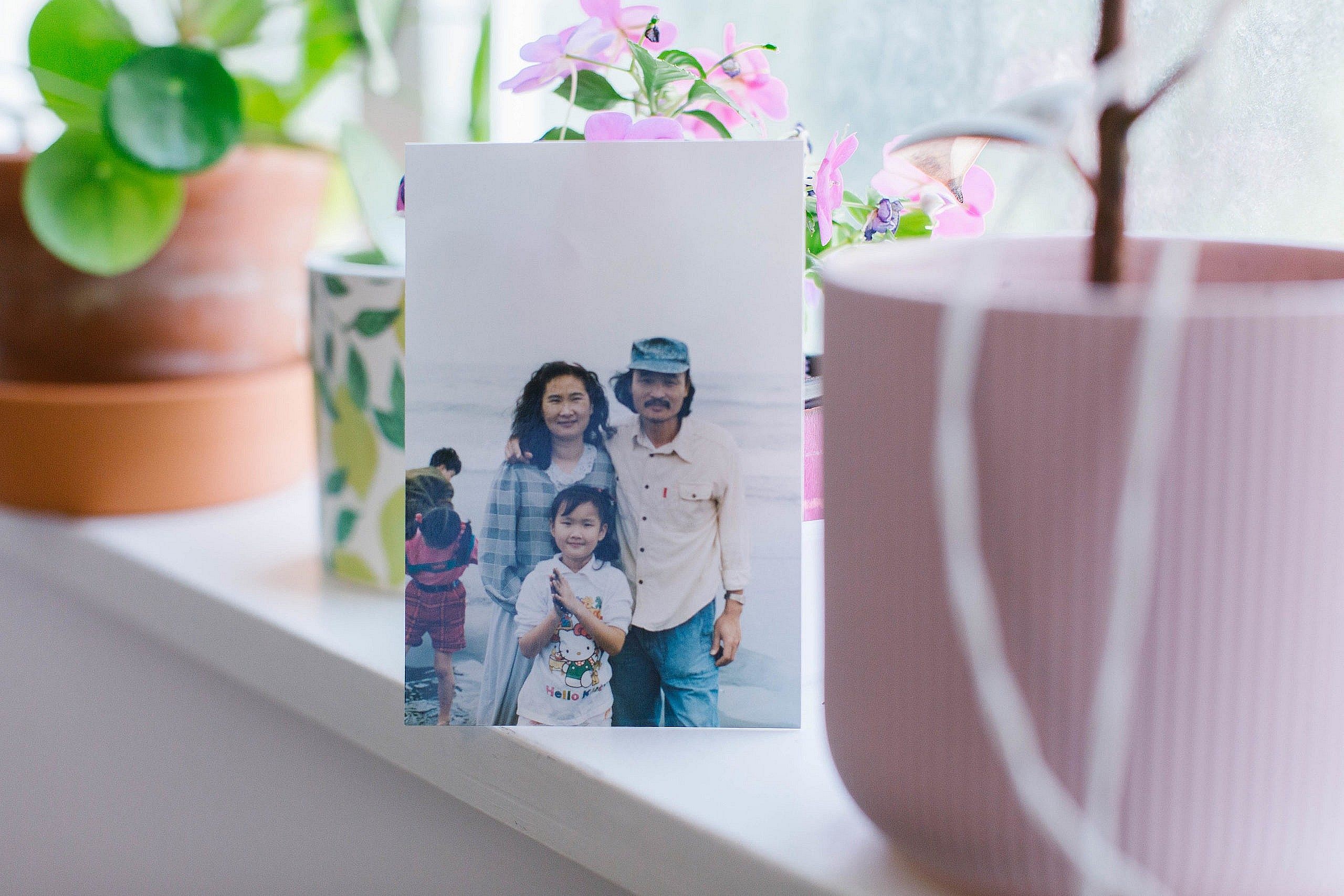As a kid, I was the main translator for my immigrant parents. It wasn’t easy.
“I dealt with bank statements and insurance papers, paid hydro bills and translated during doctor visits.”

Share

I was born in Taipei in 1986. Although I was an only child, I never felt alone: at school, I was surrounded by friends and, on the weekends, I spent time with first cousins from my mom’s side who were my age. My parents didn’t plan on immigrating until they visited my uncle and his family who moved to Vancouver in 1994. They were drawn to the greenery in Vancouver—urban construction was booming in Taipei at the time, and my parents wanted me to be closer to nature.
In 1995, when I was nine years old, we packed up our lives in Taiwan and moved into my uncle’s Vancouver home. My dad, who worked as an art teacher and filmmaker in Taiwan, opened a printing shop in Canada. My mom stayed at home with me and occasionally helped out at the shop.
My dad learned the little English he knew from listening to Beatles songs and watching Hollywood movies. Neither my mom nor I knew any English. When I started Grade 3 near the end of the school year, I didn’t have any friends because I couldn’t talk to the other students. I was put in an ESL class, and occasionally spoke to the one or two students who could also speak Mandarin. I spent lunch and recess alone, reading Mandarin novels in the bathroom. I once got in trouble from my teacher, who said I couldn’t bring Chinese books to school because I had to learn English instead. I never told my parents about this.
As I started learning English, I would help my parents translate a word or two. In 1996, a year and half into school, I was fluent enough to translate entire conversations. When I was 12 years old, I graduated out of ESL. I was proud to be able to read, write, and speak fluent English. At that point, it was easier to make friends. I understood jokes, made pop culture references, and carried conversations about things like TV and music.
RELATED: I struggled as an international student. My YouTube channel helps others avoid the same fate
In 1999, when I was 13, my dad’s printing business wasn’t doing well so he decided to go back to Taiwan to look for more job opportunities. With just my mom and me at home, I became her main translator. I dealt with bank statements and insurance papers, paid for hydro bills, helped her take phone calls and translated for her during doctor visits. I initially felt a lot of pride being able to contribute to the family. It gave me a great sense of responsibility. My mom enrolled in ESL classes, but she found it difficult to learn English and form new connections as an adult. She became isolated—I was one of the only friends she had. After a few months, my dad returned to Canada to take care of us and he found work at a non-profit.
I was grateful that my dad chose a permanent job in Canada rather than a potentially better paying job in Taiwan, all so he could support me and my mom. Although my dad was sufficiently fluent in English, he still leaned on me to pitch in and help with the family. I didn’t know the term at the time, but I was a language broker, a bridge between my parents and a new culture, an invisible responsibility I carried all my life. I learned later that I’m not alone: it’s an experience shared among children of immigrants who’ve not only had to translate for their parents, but also navigate new cultures themselves.
Although my dad’s English was better than my mom’s, there was still a cultural barrier. You can’t just Google Translate Mandarin to English—there are cultural nuances that make it difficult to switch directly back and forth between the two. I became more involved with his work, translating phone calls and business emails. Taking phone calls was the most daunting—it was scary to talk to a complete stranger who was also an authority figure. My heart would pound whenever I heard the phone ring; I would write down notes and prompts to prepare myself. Once, my mom was having difficulty speaking to a service provider, so she handed me the phone to translate. They were asking me questions I didn’t understand while at the same time I was translating and asking questions that my mom was feeding me. I was worried about mistranslating and I could tell the person on the other end was annoyed they were speaking to a child. It was incredibly frustrating, even though I tried my hardest to sound mature and professional during these conversations.
MORE: As a woman, I had no opportunities in Japan. My world opened up when I got to Canada.
By the time I was 16, my parents relied on me to translate for them every day. It was partly out of convenience, but also because they were more confident in my linguistic abilities than their own. If they needed me to translate or proofread an email correspondence or bank document, I would have to drop whatever I was doing and prioritize it. Helping them renew their driver’s licences and passports, buy car insurance, and translate visa terms became regular responsibilities. As a teenager, sometimes I resented them for not being more self-sufficient like my friends’ families. I wanted to be a normal kid who didn’t have to worry about the well-being of their parents. But in Taiwan, older generations believe that children should place family needs above their own—and that was what I felt my parents expected of me.
In 2004, I began studying general science at the University of British Columbia. I was still living at home and juggling a part-time job, extracurriculars and volunteer work. I often got home late, and that’s when my parents would ask me to help them translate: some of their requests were timely, such as reviewing tax forms. As they got older, I attended more doctor visits with them and helped them navigate new technology, like Netflix and iPhones. Despite my frustrations, I understood the stigma around people who cannot speak English well. There was an instance when my mother and I went to an insurance company’s office, when the front-desk person got frustrated with my mom because she was struggling to put her thoughts into words. It wasn’t until I stepped in to translate for her that the staff relaxed.
I graduated university in 2010, and got married in 2015. I had my first child three years later, and becoming a new parent revived old childhood memories and unresolved feelings. I came to terms with the huge responsibility I had taken on at a young age. I realized I had multiple roles: a child, a caretaker, a friend, and, in some ways, a therapist. I didn’t realize how much responsibility I had placed on my shoulders. My mother began spending more time with me to help with childcare, and I began opening up to her about my frustrations. Over time, she began to understand how much I had taken on, and I heard from her how hard it was to assimilate into a new culture as an adult. I’ve developed more empathy towards my parents, and that’s helped us become closer.
I now have two beautiful children, and want my childhood to influence how I raise them. If I hadn’t translated for my parents, they wouldn’t have involved me in their business and family decisions. Unlike the traditional parent-child model, where children follow what their parents do, I was directly involved in the family unit. I want to be intentional about how I raise my children and involve them in family affairs. Helping my parents gave me a sense of pride, and I want my kids to feel the same way. Learning from my experience, I hope to communicate with my children so they can feel like a valued member of the family, but also have the space to pursue their interests.
—As told to Prarthana Pathak
